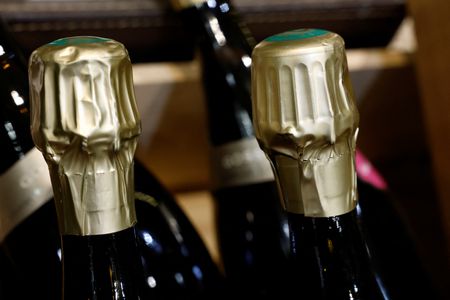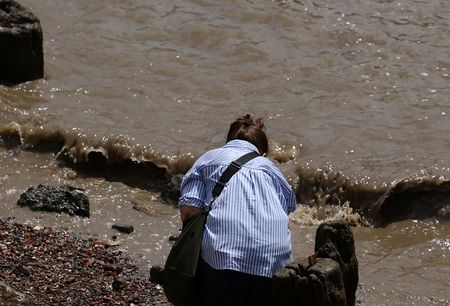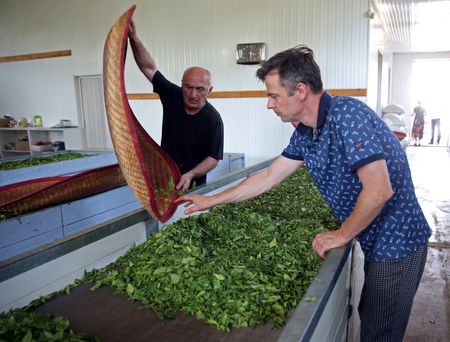(Fixes to change case of champagne in headline and paragraph 3)
VERZENAY(Reuters) -Champagne producers in northeastern France need to find new markets after U.S. President Donald Trump threatened 30% tariffs on EU exports, the chairman of a French industry group said, suggesting Brazil, Southeast Asia and South Africa as options.
The U.S. is the biggest market for champagne with 10% of champagne exports by volume and 15% by value and producers say the tariffs will push up prices for consumers and threaten jobs all along the supply chain, including in the United States.
“The repercussions for all family champagne exports will be severe because it will mean lost income from bottle sales, which will also affect the grape harvest quotas we will be allowed to collect,” said Stephane Vignon, whose family has been producing champagne in Verzenay since 1946.
With 70% of champagne sales currently concentrated in just five countries, tariffs should push producers to seek new markets, said Maxime Toubart, chairman of industry group Comite Champagne (Champagne Committee).
He said France’s cognac industry, which is mainly reliant on exports to China and the U.S. where it could also face duties, provides a cautionary tale for champagne producers on the need to diversify.
But replacing U.S. sales is not easy, he said.
“We can’t just say we’ll sell three million fewer bottles in the U.S. and put them in Japan instead. So actually, there is no alternative today to this fall in volume,” he said.
Total champagne exports fell more than 10% last year but rose slightly in the first four months of 2025 ahead of a 10% tariff in April, farm office FranceAgriMer said.
“If tomorrow the 30% tariff is implemented, I think it will definitely impact the relationship,” said Hugo Drappier of Champagne Drappier. “We’ve always managed to build a relationship of trust with our clients through the quality of our wines … Let’s hope that relationship isn’t broken.”
(Writing and additional reporting by Sybille de La Hamaide and Michaela CabreraEditing by Gabriel Stargardter and Sharon Singleton)










